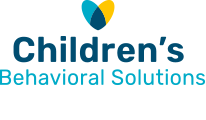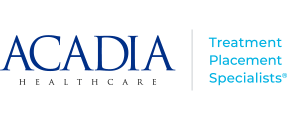Eating disorders can have a devastating impact on the lives of children, adolescents, adults, and seniors. Acadia Healthcare’s network of treatment facilities offers inpatient, residential, and outpatient care for individuals of all ages. If you or a loved one is living with an eating disorder, your path to recovery can begin at an Acadia facility.
Understanding Eating Disorders
Eating disorders such as anorexia, bulimia, and binge-eating disorder are serious and complex conditions that have the potential to cause significant physical and psychological harm. People living with these disorders are typically overwhelmed by unhealthy thoughts about weight and food that can impact virtually all areas of their lives. Eating disorders can affect people of all ages and genders, and developing an eating disorder can be a life-threatening experience that typically requires intensive professional treatment to overcome.
Disordered eating can come in a variety of forms, including not eating enough to maintain healthy nutrition, not feeling in control of how much you eat, and purging food out of your body to try to control your weight or appearance. Most people who live with an eating disorder feel an intense fear of gaining weight or have a perception of their body that isn’t aligned with what it actually looks like. To try to control their weight or body shape, people who live with an eating disorder typically try to control how much or how little food goes into their bodies in ways that can become exceptionally harmful to their overall health. Others might feel as though they no longer have control over their relationship with food. Living with an eating disorder can sometimes destroy a person’s health, self-esteem, and their personal relationships.
At Acadia Healthcare, we understand the devastating impact that eating disorders can have on individuals and how difficult these disorders can be to overcome. The Acadia treatment network features a range of facilities that provide care for individuals with eating disorders. Our talented and dedicated professionals work diligently to provide comprehensive services that empower all populations to overcome the compulsion to engage in disordered eating behaviors. We’re here to help you or your loved one achieve long-term recovery and learn how to live healthier, more productive, and more satisfying lives.
Why Consider Treatment for an Eating Disorder
The longer eating disorders are left untreated, the higher the risk becomes that an individual will develop serious and sometimes irreversible health conditions. A person living with anorexia might highly limit how much they eat, which can result in heart problems, osteoporosis, kidney failure, muscle weakness, and other physical effects. Someone experiencing bulimia might force themselves to vomit frequently to purge their food, leading to electrolyte imbalances, gastric rupture, and damage to their esophagus. Additionally, the binging that is associated with both bulimia and binge-eating disorder can lead to high blood pressure, heart problems, and Type 2 diabetes. In severe cases, eating disorders can be fatal.
The psychological and social impacts of eating disorders can be equally as devastating as the physical ramifications. People who struggle with eating disorders are at an increased risk of experiencing body image problems and diminished self-esteem. They’re also at an increased risk of experiencing other mental health conditions, such as bipolar disorder, depressive disorders, and anxiety disorders, and they are at a significantly increased risk for suicide. Compounding the danger is that there is still such a negative stigma surrounding eating disorders, which causes many people to engage in secrecy and deception to hide their behaviors. This can lead to social withdrawal, isolation, and the diminishment of their personal support network at a time when such support can literally be life-saving.
Several facilities within the Acadia Healthcare network have helped countless people recover from the despair and devastation of eating disorders. At Acadia’s eating disorder treatment facilities, individuals receive world-class care featuring comprehensive clinical and therapeutic services that are provided with unparalleled personalization and that are delivered with the utmost respect and dignity. When an individual enters an Acadia facility for the treatment of an eating disorder, they work in close collaboration with dedicated professionals to complete a customized course of treatment that is designed according to their unique strengths, needs, and treatment objectives.
Levels of Care Offered Through Acadia Healthcare
Individuals who heal from an eating disorder at a facility within the Acadia Healthcare network may benefit from receiving treatment services at several levels. Depending upon the results of a thorough assessment, an individual’s personalized care at an Acadia facility may include the following services or levels of treatment:
Detoxification services: Some people who develop eating disorders also struggle with addiction. Medically monitored detox provides a safe environment in which individuals can withdraw from alcohol or other drugs without jeopardizing their health.
Inpatient treatment: Inpatient treatment is the most intensive level of care. Services include medical and psychiatric support as well as round-the-clock supervision. Inpatient treatment may be optimal for people who are experiencing severe symptoms.
Residential treatment: Residential treatment features round-the-clock supervision, multiple therapeutic activities, educational opportunities, and an array of support services, all within a safe and highly structured environment.
Partial hospitalization program (PHP): PHP usually features full days of treatment without a residential component. PHP may include individual and group therapy. Family therapy, experiential therapy, and related services are often available as needed.
Intensive outpatient program (IOP): The IOP level offers structured support with significant flexibility. Group therapy is usually the main method of treatment in an IOP, though individual, family, and experiential sessions may also be available.
Traditional outpatient services: Many Acadia facilities provide traditional outpatient services, including individual, group, and family therapy. Traditional outpatient services may be scheduled at the frequency that best meets each participant’s needs.
Learn More
To learn more about eating disorder treatment within the Acadia Healthcare network, or to get answers to any specific questions that you may have about eating disorder services at any of our treatment facilities, please feel free to contact a treatment facility near you. We look forward to providing you with the information you need to make the best decisions for yourself or for a loved one.






